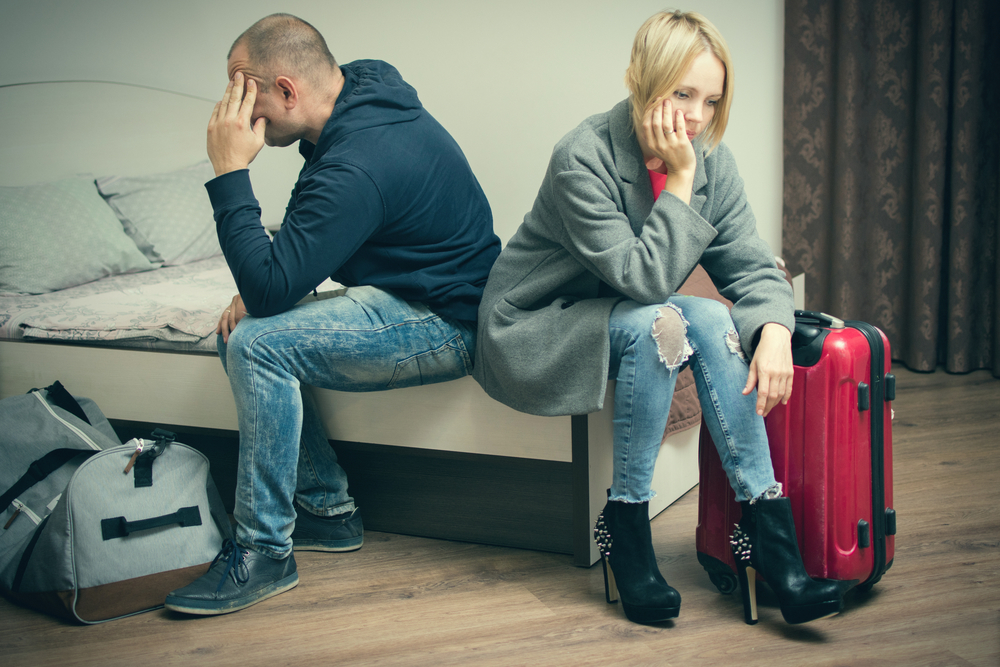
What Does Separation Anxiety Look Like in Adults?
While separation anxiety is a condition more frequently reported in children, it is a condition that traumatises adults as well. According to a recent cross-national study, separation anxiety accounts for a prevalence rate between 0.2% and 9.8%, with an average of 4.8% across 18 countries. Women are more likely to suffer from it compared to men.
This condition is as straightforward as it sounds; those with this diagnosis fear being separated from those they are emotionally attached to. Adults with this condition are likely to struggle with any situation that forces them to be away from their loved ones, whether it’s a spouse, child, or other close family members.
As a result, they develop extreme anxiety and stress, resulting in a range of behaviours that disrupt their day-to-day lives.
In our post this week, we examine these signs even further. Like many mental health conditions, signs and symptoms of separation anxiety can be subtle. Continue reading for a closer look.
Constant fear of being separated from a loved one
This condition is characterised by a fear of being separated from loved ones, most often for factors beyond their control. People with this condition often worry that their loved ones will get sick or die while they’re away from them.
Have you ever felt like you worry about your family, excessively, when they’re away?
While it’s natural to worry about your loved ones, if you are constantly worried about them whenever you’re not with them and your mind jumps to worst-case scenarios all the time – and this affects your health and day-to-day life – this could be a sign that you have separation anxiety.
Reluctance to be away from home
Tied in with the constant worry that something bad is going to happen, people with this condition may also be reluctant to leave their loved ones and leave their home. This is the case even if they have school or work to attend to.
Naturally, this can cause significant disruption to an individual’s day-to-day life. If you find yourself unable to keep up with your commitments at work or don’t want to leave the house because you’re afraid of leaving your loved ones, this is a sign that you need mental health support.
The fear of being alone
Beyond just worrying that something bad will happen to someone you care about, separation anxiety also leaves you fearful of being alone.
This fear can be so intense that it causes you to have nightmares and display a number of physical symptoms including headaches, nausea, or palpitations. The thought of being alone may fill you with dread for weeks and can disrupt your daily activity.
Difficulty maintaining relationships
Another sign that someone may be suffering from separation anxiety is the fact that they struggle to maintain relationships with loved ones.
Especially in the context of a romantic relationship, things can easily become strained if you are constantly checking up on your loved one and are asking them where they are and if they’re alright. You may even find yourself turning on the news to see if something has happened to them.
All of this can result in a difficulty to maintain healthy relationships, although it’s not impossible.
Difficult work and social life
For anyone who suffers from separation anxiety, leading a normal life can be very difficult. Social isolation, loss of employment opportunities, poor performance at work or school, and constant stress can result in a very unfulfilling life.
Given the nature of this condition, those who suffer from it may find it difficult to reach out for the help they need. It may even be difficult to identify whether something is wrong given that worrying about your family and loved ones is normal for most people.
Get the right support for separation anxiety
Separation anxiety can leave you feeling unhappy, stressed and constantly on edge. Fortunately, it doesn’t have to be that way.
Reach out for the support and guidance you need to manage your condition and control your thoughts and emotions. While overnight treatment is impossible, you will find that with the right mental health support, you can control your anxiety, wherever you are.
